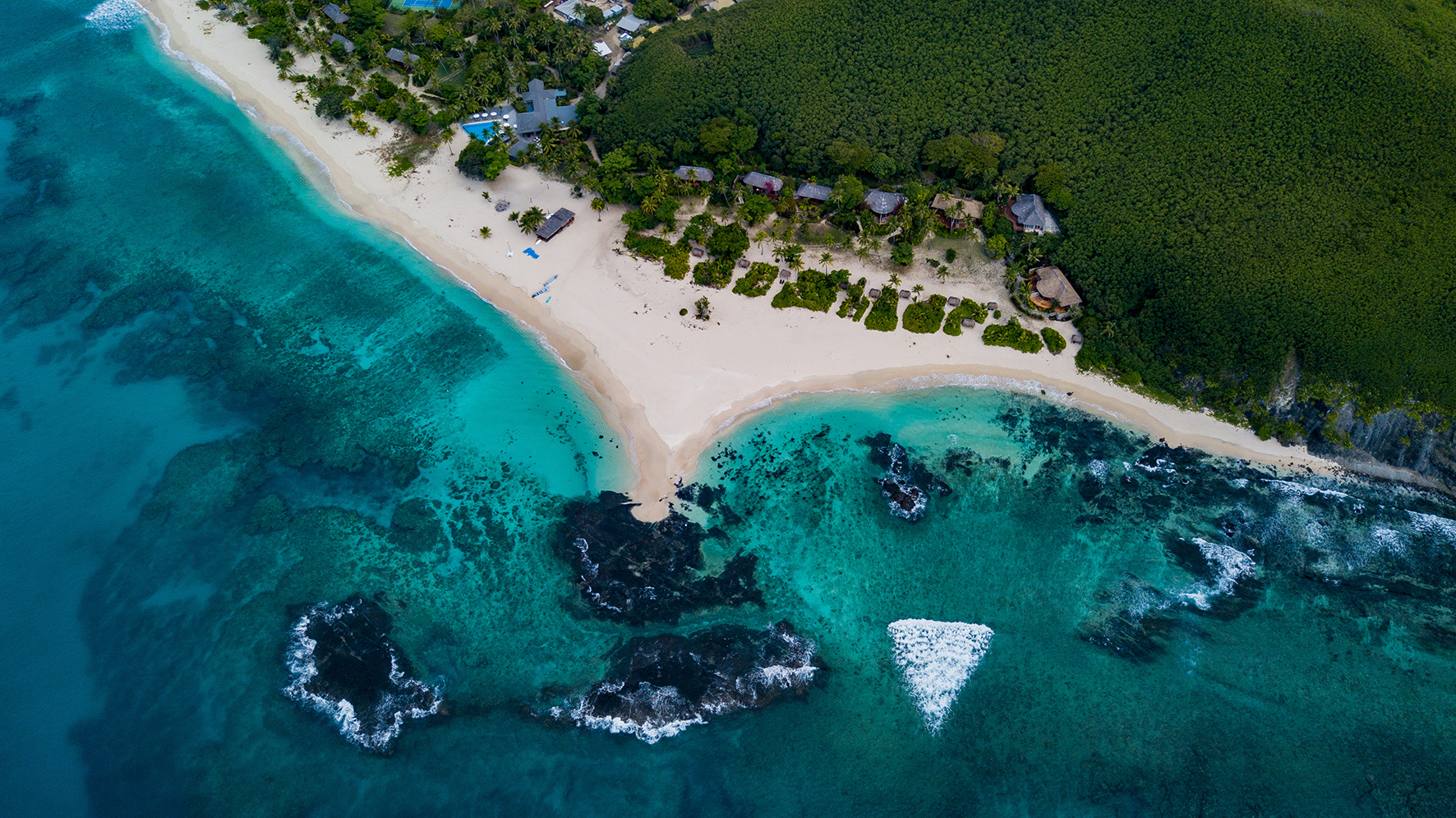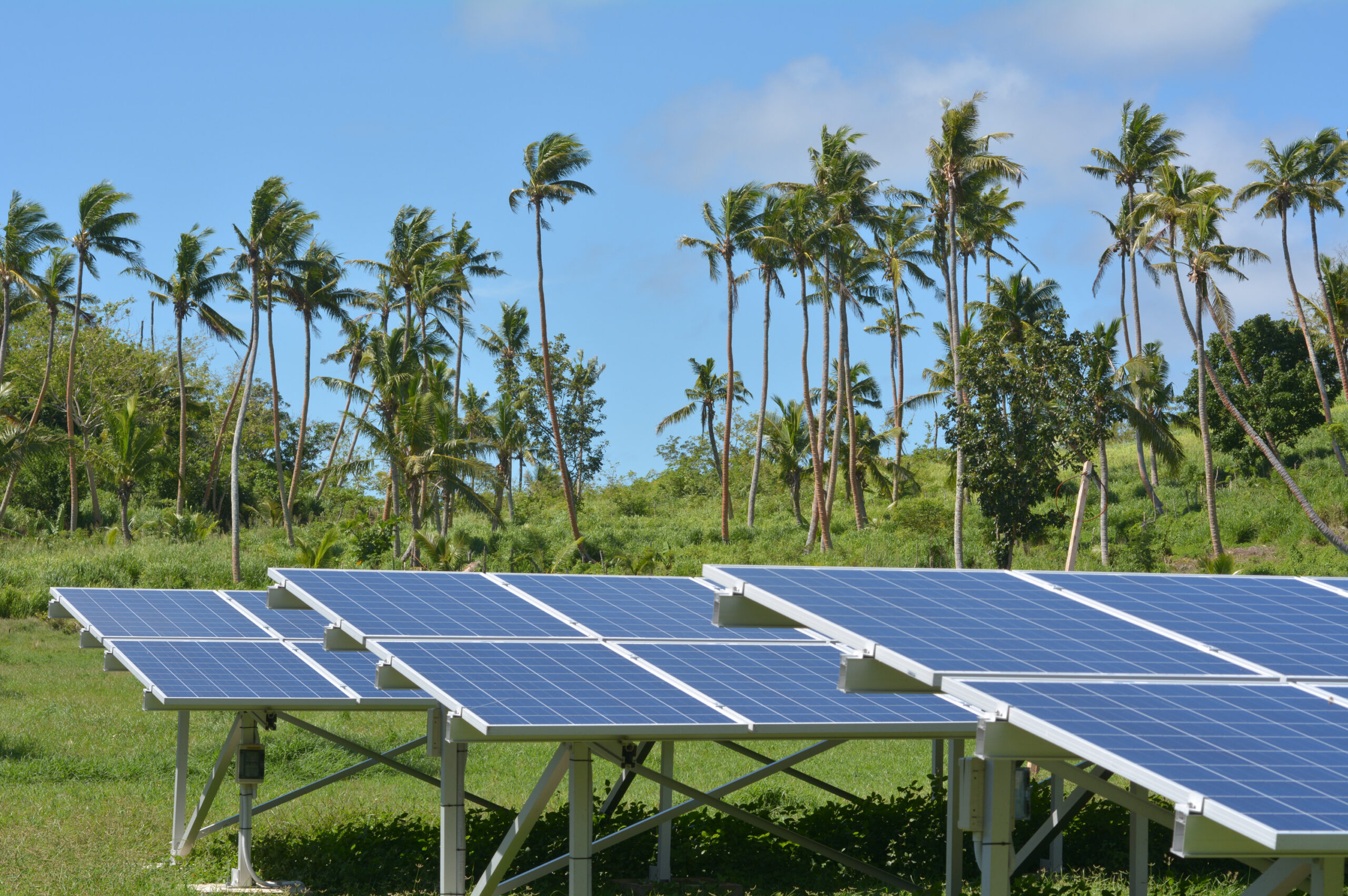- Projects & Programmes
- Hotel sector energy efficiency in Fiji
Our Portfolio
Hotel sector energy efficiency in Fiji

Background
In Fiji, where tourism is the largest industry and estimated to account for a quarter of the nation’s economy, there was strong potential at the end of the 2000s for a sectoral approach that coordinated the efforts of all major tourism stakeholders to achieve collective energy savings and reduce costs.
In 2009, REEEP provided funding to an Australian-based clean technology specialist, Greenlight Technology Group, to develop a structured marketplace for energy efficiency (EE) and renewable energy (RE) services and technologies tailored to Fiji’s hotel and resort sector and to provide instruction on the financing opportunities available under the Clean Development Mechanism (CDM) of the time for small-scale energy efficiency projects.
REEEP’s support
To develop the marketplace, the project created a strategic plan for implementing a range of EE and RE solutions in the Fijian hotel and resort sector and established a local partnership in Fiji to facilitate the project and provide long-term benefits to the community. It also identified key stakeholders and created the Low Carbon Tourism Alliance, a sector-wide alliance of the key players in Fiji’s hotels and resorts sector and local clean technology businesses to widen the uptake of renewable energy.
This resulted in improved awareness of renewable energy and energy efficiency solutions within the hotel and resort sector, and it used CDM as a funding vehicle to subsidise small-scale EE/RE projects.
When GLTG entered Fiji and started building a network, there was a greater demand for a broader project, which they reframed in their initiative with REEEP. Through our intervention, GLTG holistically looked at a low-carbon tourism initiative, which established a broader platform to bring stakeholders in and combine what GLTG was trying to do regarding mobilising finance and technology with support from the government and the tourism sector in the country.
“REEEP gave us the baseline funding to take a risk to a certain extent and trial our model offshore. With that sort of financial support, it enabled us to take a little bit more risk in our approach and be a lot more adaptive”, says Chris Andrew, CEO of Green Light Technology Group.
You are currently viewing a placeholder content from YouTube. To access the actual content, click the button below. Please note that doing so will share data with third-party providers.
More Information
The partnership with REEEP gave them the confidence that they had the backing of an organisation that was focused on developing the market. ‘’REEEP was supportive of us being exploratory, trialling and erroring and being adaptive to where we were going. It allowed us to step into a market that we hadn’t worked in [Fiji], but we were confident we could work in.”
The project saw success in doing what it ultimately set out to do and in delivering a framework. Regarding the model for low-carbon tourism in Fiji developed by the strategic alliance of key tourism stakeholders, he says, “We had the Ministry of Energy, the Hotel Association, the Minister for Tourism, the Director of Energy, the Reserve Bank and a number of other players sitting at a table discussing clean energy and sustainable energy – I think that model was hugely successful because it brought people with a common goal from different parts of Fiji”.
The project also resulted in unexpected positive outcomes by making certain groups reassess their investments and capacity-building objectives in the Pacific. ‘’REEEP played a key role in catalysing interest in mobilising existing development agencies in the Pacific to think differently, ’’ says Chris.
“REEEP’s invest, learn and share model is a model that is replicable in a lot of other sectors. Here in Australia, it’s easily replicable in not only just the clean energy space but a number of other different initiatives where we need to better mobilise actions to deliver the Sustainable Development Goals”.

Main Activities
- Develop a strategic plan for implement-ng a range of EE and RE solutions in the Fijian hotel and resort sector
- Establish a local partnership in Fiji to facilitate the project and provide long-term benefits to the community
- Identify key stakeholders and create a sector-wide RE/EE alliance to include among others the Fijian Island Hotel and Tourism Association, hotel and resort operators, Fiji Electricity Authority, Department of Energy, Fijian Australian Business Council, ANZ and Fiji Times
- Develop and launch an online marketplace for the EE and RE technology and service providers to hotels
- Develop an advisory paper on the application of small-scale CDM to Fijian hotel/resort industry
- Launch project at Fijian Australian Business Council (FABC) Forum in November 2009
Expected Impact
- Improved awareness of RE/EE solutions within the hotel/resort sector
- Functioning online marketplace for RE and EE solutions, ongoing relationships between service providers and hotels
- Formation of strategic alliance of key tourism stakeholders for EE/RE
- Estimated annual GHG reduction of 1,000 to 2,000 tCO2e per hotel
- CDM used as funding vehicle to subsidise small scale EE/RE projects
- Longer-term export of sectoral approach to other neighbouring Pacific Island countries